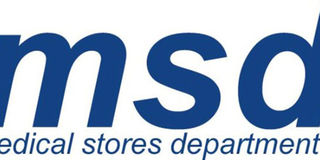Major challenges facing the Medical Stores Department (MSD) in execution of its duties.

What you need to know:
- Lack of a strong domestic pharmaceutical industrial base is still a challenge as the country is mostly depends on imported drugs.
Dar es Salaam. The existing procurement and delayed disbursement of funds from the government are among the major challenges facing the Medical Stores Department (MSD) in execution of its duties.
The MSD acting director general, Mr Isaya Mzoro, told journalists yesterday that regardless of the fact that they receive the allocated budges in full; the department does not get it on time.
He said during the first half of the last financial year, MSD received less than a quarter of its total allocated budget. He said budgetary constraints and delays in disbursement of the money limit MSD capacity to supply drugs, hence fail to cope with the increasing demand for medicine in the country.
“The demand for drugs is high. But what the government allocated for purchasing them is far beyond meeting the demand. But the situation becomes hard with delays in issuing the little allocated funds,” said Mr Mzoro.
Lack of a strong domestic pharmaceutical industrial base is still a challenge as the country is mostly depends on imported drugs.
Currently, 80 per cent and 95 per cent of the total demand for drugs and medical equipment comes from abroad, while 100 per cent of laboratory reagents are also imported.
He urged the ministry of Industry, Trade and Marketing and the Tanzania Investment Centre to encourage domestic investment in pharmaceutical products to raise the capacity.
Mr Mzoro distances MSD from allegations of involvement in selling drugs and medical facilities to private pharmacies, saying the malpractice could be happening at hospital or dispensary level where MSD has no control.




